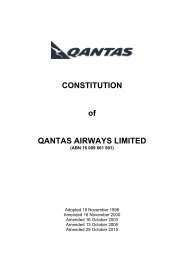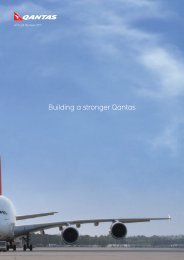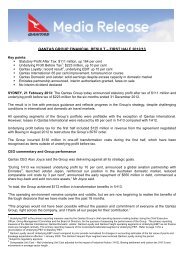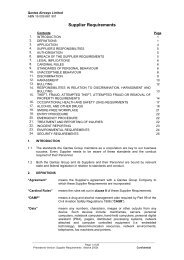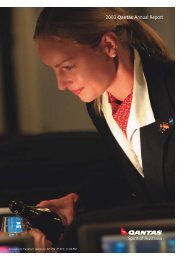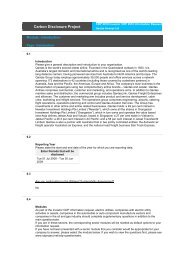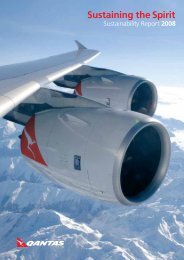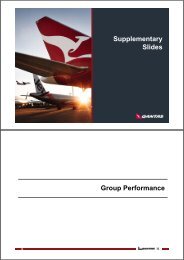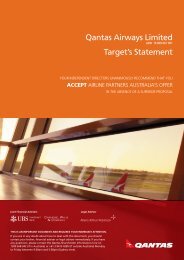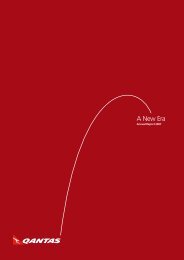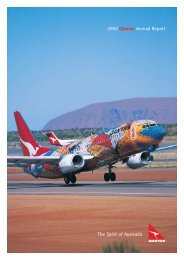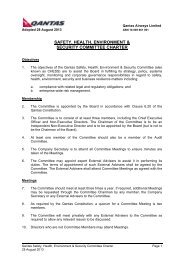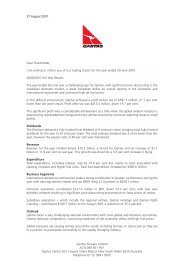radio - Qantas
radio - Qantas
radio - Qantas
Create successful ePaper yourself
Turn your PDF publications into a flip-book with our unique Google optimized e-Paper software.
Talking Business with ITA BUTTROSE<br />
14<br />
James<br />
Bradfield Moody<br />
JM It’s a massive change and the thing about waves of<br />
innovation is that it’s not just about technology; it’s about<br />
changes in markets. The fact that waste becomes suddenly<br />
a driver for value creation; it’s a change in what they call<br />
the institutions that make up our society. The big change<br />
that we see in the sixth wave will actually be around pricing<br />
things that have never been priced before, like a litre of<br />
water or carbon dioxide or biodiversity. Of course there’s<br />
massive changes in technologies and in the sixth wave<br />
it’ll be everything from clean technologies around water<br />
or waste to things like green chemistry and materials.<br />
You put that together and we actually see a very different<br />
world in the future; one in which, in fact since the Industrial<br />
Revolution, economic growth has been coupled with<br />
consumption of resources, we see in the sixth wave a world<br />
where we’re going to be decoupling economic growth from<br />
that consumption of resources.<br />
IB We decouple, we then start to look at ways to use waste<br />
as a resource.<br />
JM Indeed, and in fact, what we’ve done with the book<br />
is we’ve sort of separated it into two sections. The first is<br />
about the sixth wave and why we think that the world of<br />
limited resources is the next wave. The second is what are<br />
the rules of thumb that you would want to use in order to<br />
succeed in a world of limited resources. Almost the advice<br />
we think we would be giving ourselves from the future.<br />
The first rule of thumb, as you say, is that waste equals<br />
opportunity, and if you can find a large amount of waste in a<br />
system, and find a way of reducing that waste, then there’s<br />
a huge amount of opportunity that can come from that.<br />
IB I’m Ita Butrose and I’m talking with James Bradfield<br />
Moody, the co-author of The Sixth Wave. James, give us<br />
some examples of how waste can be used as a resource.<br />
JM There’s a great example, it can happen from a very<br />
large scale to a very small scale. There’s a great example of<br />
a brewery in Canada. The brewing process for beer creates<br />
a lot of grain waste and that waste just can’t be digested<br />
<strong>radio</strong><br />
QANTAS INFLIGHT ENTERTAINMENT | JUNE 2010



